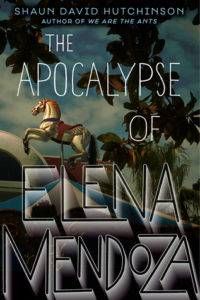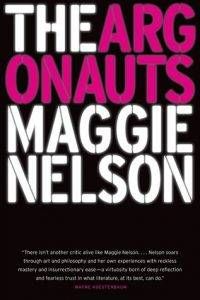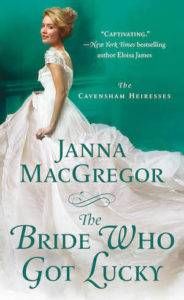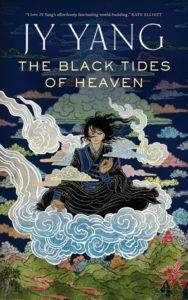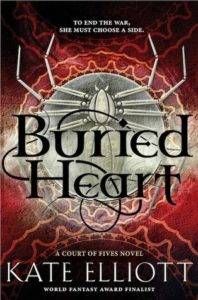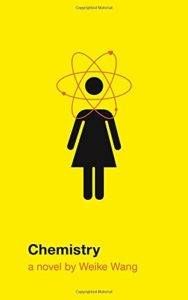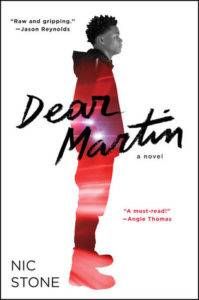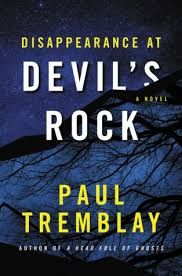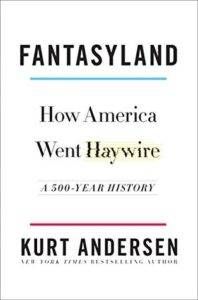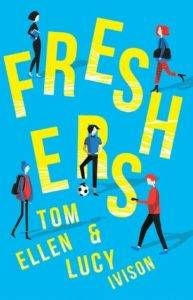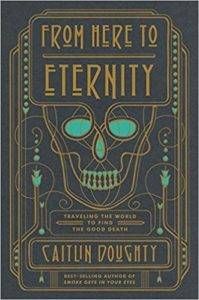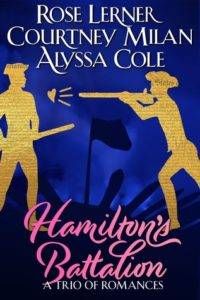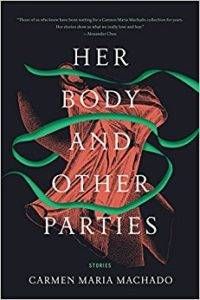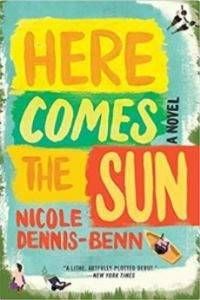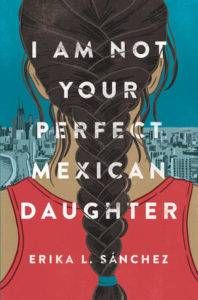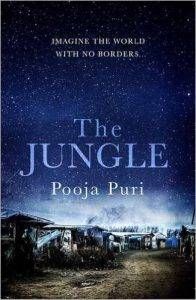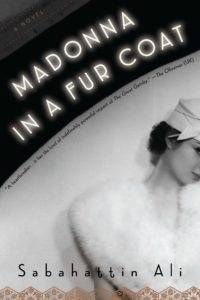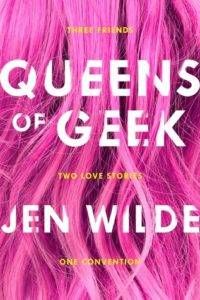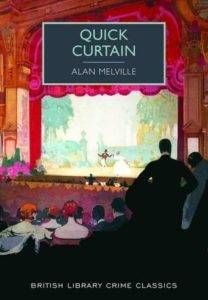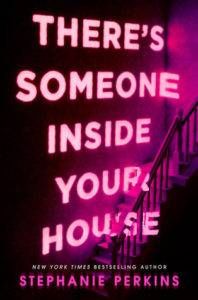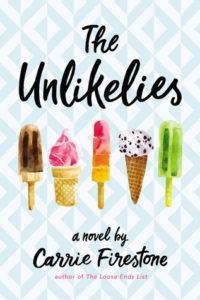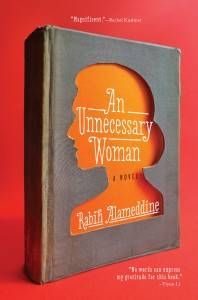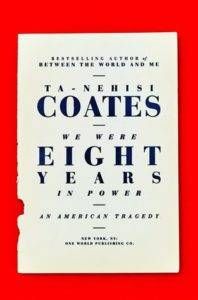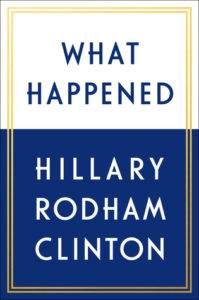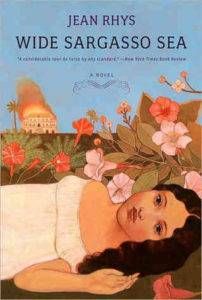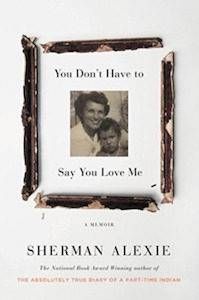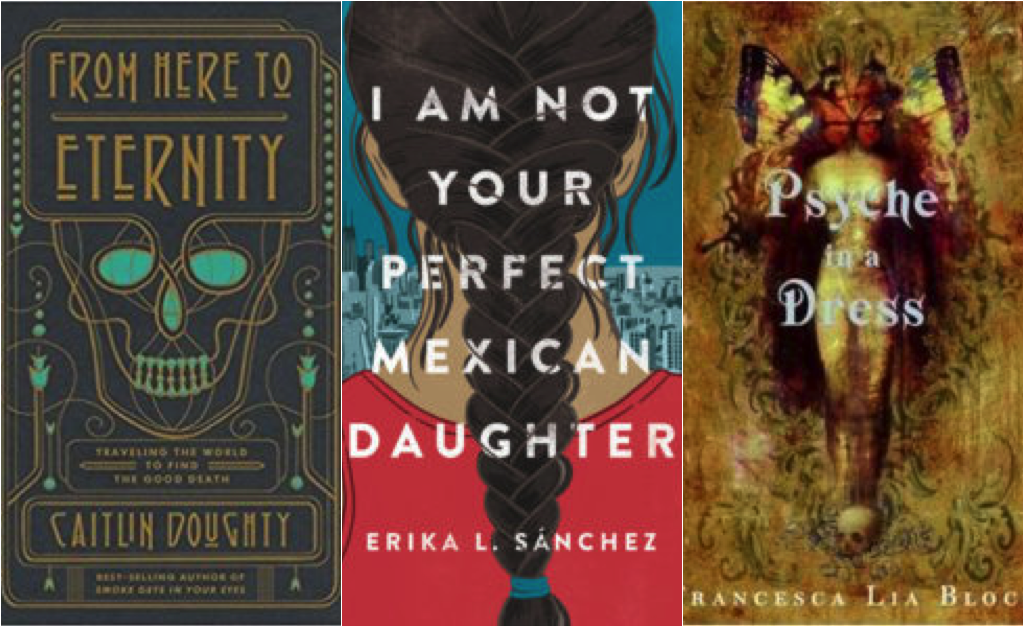
Riot Round-Up: The Best Books We Read in October
We asked our contributors to share the best book they read last month. We’ve got fiction, nonfiction, YA, and much, much more—there are book recommendations for everyone here! Some are old, some are new, and some aren’t even out yet. Enjoy and tell us about the highlight of your reading month in the comments.
 The Apocalypse of Elena Mendoza by Shaun David Hutchinson
The Apocalypse of Elena Mendoza by Shaun David Hutchinson
Elena Mendoza is the first human scientifically confirmed to have been born by parthenogenesis; in other words, she is the product of a virgin birth. After she miraculously saves her longtime crush from a fatal bullet wound, Elena discovers she has the power to heal and she must use her power, or else the world will end. But as Elena reluctantly begins healing those afflicted, people begin around the world begin getting raptured in a bright light. I loved this book so much. It was funny, poignant, and had so much representation. Also, a certain someone in a big White House gets raptured and it’s highly satisfying.
—Kate Krug
 The Argonauts by Maggie Nelson
The Argonauts by Maggie Nelson
I started listening to this audiobook at the airport during a trip and immediately did something I have never done before: I slowed it down. I realized that my usual use of audiobook-as-distraction wasn’t going to work. I needed to really listen. Eventually I got back to regular speed, but I was constantly absorbed, challenged, deep in thought, and full of emotion as I read this book that explores queerness in a way I personally haven’t seen before, especially in relation to motherhood. I know I am a little late to it but I’m glad I made it.
—Jessica Woodbury
 The Autobiography of Gucci Mane by Gucci Mane
The Autobiography of Gucci Mane by Gucci Mane
Gucci Mane’s book is an personal memoir that feels like a history of Atlanta trap music. Beyond his journey into selling drugs, run-ins with the police, and drug use, he also explains what was going on in the background of his music. His role as mentor to a number of artists is well known, but this book offers his logic and feelings behind those decisions. It was a fast read for me, mainly because I just didn’t want to stop reading.
—Rachel Wagner
 Believe Me by Yolanda Hadid
Believe Me by Yolanda Hadid
I’ve been eagerly anticipating Yolanda Hadid’s memoir about her journey with chronic Lyme disease ever since the book deal was announced last year and it’s even better than I expected. Hadid doesn’t hold back, exposing the gritty details of her search for a cure and, in the process, illustrating the desperation of Lyme patients who have been dismissed and disparaged by the American allopathic medical community. It’s a book that is deeply personal to all of us who share this devastating disease and will hopefully raise awareness moving forward.
—Kate Scott
 The Bride Who Got Lucky by Janna MacGregor
The Bride Who Got Lucky by Janna MacGregor
I’ve been having trouble articulating why I love this book so much. Maybe it’s because Nick and Emma’s romance is hard to categorize via romance trope. Their journey wasn’t exactly friends-to-lovers and it wasn’t really a second chance romance, but there were elements of both of those popular romance devices woven throughout the novel. All I know is that this book took me by surprise. I’ve read it and reread it over the past few weeks and the nuances MacGregor added into the story have me completely captivated. This book is truly enchanting. Note: although the second release in MacGregor’s The Cavensham Heiresses series, this book can easily be read as a stand-alone.
—Erin McCoy
 The Black Tides of Heaven by JY Yang
The Black Tides of Heaven by JY Yang
As I explained in a recent post, Tor.com broke my brain recently by publishing on the same day two novellas by Yang set in the same world. I’m an obsessive read-in-order person, so it was quite something to confront these twin novellas, which Yang insists can be read in any order. But once I decided to start with The Black Tides of Heaven (on author Malka Older’s suggestion), I got over my weirdness and surrendered to the spectacular, engrossing world that Yang built. Unexpected interactions between magic, gender, and political machinations drive a plot that is somehow both spare and rich. And the writing itself is some of the best I’ve encountered in recent fantasy. Whether you start with Black Tides or with The Red Threads of Fortune, read these books as soon as you can.
—Derek Attig
 Buried Heart by Kate Elliott
Buried Heart by Kate Elliott
The finale to Elliott’s Court of Fives trilogy, this was possibly my most anticipated book of the year. Bi-racial Jes finds herself caught in between the colonizing light-skinned Patrons and the oppressed dark-skinned Commoners. She’s athletic and competitive, not feminine enough to be ideal in her mother’s matriarchal society, but still an unlucky girl in her father’s patriarchal society. Jes forges her own path as revolution and invasion are in the air. Elliott tosses out the usual story of power struggles within royal families by offering a third option. With representation of disability, queer identities, mixed-race, classism, demonstrated ally-ship and a BAMF mother-figure, this book gave me all the goodness. I still find myself thinking about it and I think I need to re-read the whole series soon. This will definitely be in my top reads of the year.
—Aimee Miles
 Chemistry by Weike Wang
Chemistry by Weike Wang
I was drawn to Weike Wang’s debut novel because of its striking and sparse cover art. It’s the story of a PhD student in chemistry whose boyfriend proposes to her, but she can’t bring herself to say yes. And while the book is about that on its face, it ends up being about so much more than that. It’s about finding one’s identity in life and work and relationships. It’s about how our upbringings shape us, and how much control we really have over the fallout. It’s about when plans change, or rather, when nothing at all goes as planned. Weike Wang’s heroine keeps us at arm’s length—just like she does with everyone in her life—but we come to know her best by the end of the book, and my heart just hurt for her at every step. This book was a surprise, and I really enjoyed everything it ended up being about.
—Dana Staves
 Dear Martin by Nic Stone
Dear Martin by Nic Stone
In this young adult debut, Justyce, an African American teen, struggles with the obvious racial disparities he sees in society every day. In the first chapter, he gets handcuffed and arrested for the appearance of evil. While he’s later released, he can’t reconcile what he has experienced to what his white classmates are saying about a colorblind America. So he writes letters to Dr. Martin Luther King, Jr. in order to try to find some answers. If the plot wasn’t enough to keep the pages turning quickly, the changes in format throughout keep it visually interesting as well. Written specifically for reluctant readers, Dear Martin is a short but poignant story that teens of color will find relevant.
—Nikki DeMarco
 Denton Little’s Death Date by Lance Rubin
Denton Little’s Death Date by Lance Rubin
This may be the most purely teenaged book I’ve ever read. In Denton’s world, science can somehow predict when you’re going to die, even if it’s a coincidence like a car accident and not biological, but not tell you how yet. But Denton’s voice is so charming and funny and purely teen-like that you just go with it. Denton’s death date is richer with love triangles, affable friends, parental mysteries and a deep desire to just make it to prom before Denton drops dead than it is with deathly melodrama, and it’s perfect for it.
—Emily Wenstrom
 Disappearance at Devil’s Rock by Paul Tremblay
Disappearance at Devil’s Rock by Paul Tremblay
I read Paul Tremblay’s amazing horror novel, A Head Full of Ghosts, a couple years ago, and I knew that I would love Disappearance at Devil’s Rock as well, but it took me over a year to finally read it. I’m so sad I waited this long—it’s very rare that you find horror novels with this level of nuance and compassion woven into the story. The plot itself is pretty standard—young teenage boy goes missing, mother and family struggles with grief as the investigation progresses—but all of the characters are so complex and so vividly drawn that the story takes on a life of its own. Don’t expect an overtly supernatural story—like with AHFoG, there’s a lot of ambiguity at play—but do expect an expertly crafted, compelling novel with emotion, dread, human horror, and a mysterious supernatural element that exists most strongly on the peripheries of the story. It’s masterfully done, and I can’t wait for whatever Paul Tremblay writes next.
—Katie McLain
 Dunbar by Edward St. Aubyn
Dunbar by Edward St. Aubyn
Dunbar is a recent edition of the Hogarth Shakespeare novels. It is a modern retelling of King Lear where Dunbar, as Lear, is a powerful Canadian media mogul who finds himself forcibly admitted to a sanitorium by his two conniving daughters. Like Lear, it’s a powerful meditation on age, power, and forgiveness. I’m not a huge fan of King Lear as a play but this book sliced me in half. There’s really nothing quite like a text that makes you depressed and joyous at the same. The former because how much pain we inflict on each other and ourselves and the latter because of how literature can make us feel things so strongly about people who don’t actually exist. Of the Hogarth Shakespeare series, this one is my favorite.
—Elisa Shoenberger
 Fantasyland: How America Went Haywire: A 500-Year History by Kurt Andersen
Fantasyland: How America Went Haywire: A 500-Year History by Kurt Andersen
Have you been depressed since last November 8th? Does the institutionalization of anti-science horrify you? Do you feel irrational rulers have hijacked our country? Does your soul ache because our liberal compassions are under siege from conservative prejudices? Do you wonder if our collective mind has blown a gasket? Then you need to read Fantasyland by Kurt Andersen. This book will not solve our problems, but it does explain how our nation has been crap-believing crazy for five centuries. Fantasyland is the most entertaining, informative, and comforting nonfiction book I’ve read in years. Fantasyland soothes my America is collapsing anxiety by reporting on all the dumbass ideas Americans have embraced since Jamestown. Because I can’t cast any first stones, reading this book makes me list all the stupid concepts I’ve tried to embrace in the last sixty years. We’re all suckers for fantasy saviors. Fantasyland proves hope for the future depends on getting clean with reality. Recognizing we have a fantasy addiction is the first step.
—James Wallace Harris
 Freshers by Lucy Ivison and Tom Ellen
Freshers by Lucy Ivison and Tom Ellen
I’ve been feeling deeply nostalgic for my university days, in this, the twentieth anniversary of my own first year, so this book came at a perfect time. “Totally nails the chaotic giddiness of being a student,” reads the blurb on the cover, and that’s a perfect way to put it. I laughed, I cried, I inwardly screamed at chapter 17, but I’m not going to spoil it for you. This is marketed as YA, but really, it’s for anyone, and especially anyone with college nostalgia. And if you’re curious about how uni works in the UK, there’s also lots of cultural insights here. It’s not published in the US, but you can hunt it down on bookdepository or on Amazon New and Used.
—Claire Handscombe
 From Here to Eternity: Traveling the World to Find the Good Death by Caitlin Doughty
From Here to Eternity: Traveling the World to Find the Good Death by Caitlin Doughty
When I first heard about this book, I thought she was digging into history and what ancient Egyptians did to care for their dead. It turns out Caitlin Doughty, the charming mortician of the internet, traveled the world to witness current death/funeral/burial rituals. She hangs out with a mummified grandfather who has his own bedroom in the house in Indonesia. She attends an open-pyre funeral in the United States. She visits a “body farm,” where researchers are working on perfecting human composting. This book is fascinating and funny and moving and UGH, read it. It’s sprinkled with cool grotesque scenery drawings by Landis Blair, which adds to the beauty.
—Ashley Holstrom
 Hamilton’s Battalion: A Trio of Romances by Rose Lerner, Courtney Milan, and Alyssa Cole
Hamilton’s Battalion: A Trio of Romances by Rose Lerner, Courtney Milan, and Alyssa Cole
It’s almost not fair to claim this as the best book, because it’s really three books. These three novellas, based around Eliza Hamilton’s pursuit of stories about her husband after his death, tell the stories of those whose names were not carried on. A Jewish woman who has taken on the persona of a man and the husband who believed her dead. A member of the Rhode Island “Black” Battalion and the British officer who strikes up a conversation with him during a key skirmish at Yorktown; a determined young woman who has come to The Grange to tell her grandfather’s story (whose love story was already given to us by the fabulous Alyssa Cole in Be Not Afraid) and the stalwart maid in Mrs. Hamilton’s household who can’t seem to stop thinking about her. My heart went total Grinch-at-the-end and grew three sizes as I read this, and I wish I could read them for the first time all over again.
—Jessica Pryde
 Her Body and Other Parties: Stories by Carmen Maria Machado
Her Body and Other Parties: Stories by Carmen Maria Machado
I was craving that perfect October read, something spooky, thrilling, and provocative. New release and debut Her Body and Other Parties exceeded all of my expectations and cravings, and then some. Intense and strange, feminist and queer, this collection of stories blends genres—notably horror and fantasy—to shape narratives of women and the violence visited upon their bodies. It’s a powerful and enthralling collection and I can’t wait for more from Carmen Maria Machado.
—Pierce Alquist
 Here Comes the Sun by Nicole Y. Dennis-Benn
Here Comes the Sun by Nicole Y. Dennis-Benn
WOW. I can’t believe I let this book hang out in my TBR for so long. Here Comes the Sun is a woman-centric story that looks at the stunning disparity between Jamaicans and the wealthy tourists who visit. Dennis-Benn explores issues of sexuality, religion, poverty, race, education, and the sacrifices we make for family. It definitely isn’t light reading, but this book had me so engaged from beginning to end.
—Susie Dumond
 I Am Not Your Perfect Mexican Daughter by Erika L. Sánchez
I Am Not Your Perfect Mexican Daughter by Erika L. Sánchez
When I started this book, I had no way of knowing it would be exactly the book I needed right now. I identified so deeply with Julia and appreciated the exploration of grief, depression, and the crushing struggle when your family expects you to be something you’re not.
—Sarah Nicolas
 Ill Will by Dan Chaon
Ill Will by Dan Chaon
When psychologist Dustin Tillman was 14, his parents were killed and Dustin testified in court that his adopted brother did it as part of a Satanic ritual. Now the brother, Rusty, has been exonerated and released from prison. Meanwhile, Dustin has a patient who believes a serial killer is drowning young, drunk college men. This is a pleasing mind-bender of a book that raises questions about whether the stories we tell ourselves are true. By the end of the book, I was wondering if my own belief about what happened just came from my own human tendency to impose a story on the limited facts I have.
—Teresa Preston
 The Jungle by Pooja Puri
The Jungle by Pooja Puri
I picked up this book mostly because Pooja Puri was going to be at a conference I was attending. I didn’t expect to be enthralled by this story. There aren’t a lot of authors who can take the difficult subject matter of the Calais refugee camp and spin it into a heartfelt story about friendship and endurance. Yet, Pooja Puri does exactly that and more, creating compelling characters and relationships that have stayed with me long after I had finished the book. It was also a real pleasure to hear her speak about the book!
—Adiba Jaigirdar
Madonna in a Fur Coat by Sabahattin Ali (Other Press, November 7, 2017)
This was beautiful in all its layers. It is the story of Efendi, a young sensitive man from Turkey, who has found employment in Berlin after WWI. He’s alone, but finds solace in a portrait of a woman he finds while at an art exhibition. Maria Puder is the woman, or the Madonna, in the portrait. Efendi falls in love with the self portrait of Maria, and when he stumbles into her on the street there is no other path for him: he must love her. And love her he does. He is consumed by his love for her even though she tries to fend him off. Maria is Ali’s true hero. This was originally published in 1943.
—Sarah Ullery
 Psyche in a Dress by Francesca Lia Block
Psyche in a Dress by Francesca Lia Block
While I generally enjoy retellings of Greek myth, I didn’t have high hopes for this one. The synopsis seemed like it was doing too much: YA retelling of multiple myths, written in verse form, set in contemporary Hollywood. On their own, all these elements sound wonderful, but together? Would it work? The answer is absolutely yes. I love how Block entwines the stories of mistreated women in Greek mythology—from Psyche to Echo to Persephone to Demeter—to create a feminist message about choice and the relationships between mothers and daughters. And the verse form worked surprisingly well. This is my third book by Francesca Lia Block, and my favorite so far. I love how subversive her writing is, both in terms of content and craft. Highly recommend for those who love retellings.
—Margaret Kingsbury
 Queens of Geek by Jenn Wilde
Queens of Geek by Jenn Wilde
I’ve never been a big fan of books about fandom or set at fan conventions, but Wilde’s debut really blew me away. The book follows three friends who travel from Australia to attend a fan convention in the U.S. Two fall in love with each other and the other falls in love with a long-time crush. One of the main characters is autistic and struggles with mega anxiety, while the other main character is openly bisexual.
What I particularly loved here was that the con here is the setting. It’s not in any way the plot nor the driving force. This is what I think has made fandom/con books hard for me before. The titles I’ve read in the past have focused a bit too heavily on this as the plot and not enough about being the place for the story to unfold.
A fun, empowering love letter to nerds. Readers who loved Eliza and her Monsters would love this one, too.
—Kelly Jensen
 Quick Curtain by Alan Melville (British Library)
Quick Curtain by Alan Melville (British Library)
This was an unexpected delight. Quick Curtain is a frothy 1930s crime novel where the crime, like the detection, is of little consequence. The book is mainly a vehicle for quips, as it turns a cheerfully satirical eye to pompous critics, greedy theater producers, unprincipled journalists, and on and on. There are some wonderful running gags here, like a stage manager whose pockets contain everything but the kitchen sink. I finished the book in a sitting, and wished for sequels.
—Christine Ro
 Salvation of a Saint (Detective Galileo #5) by Keigo Higashino, Alexander O. Smith (Translator)
Salvation of a Saint (Detective Galileo #5) by Keigo Higashino, Alexander O. Smith (Translator)
Yet another Japanese mystery that hits all the notes for being a great novel! Manabu Yukawa, a physics professor (Detective Galileo), is once again needed to help figure out a police case: How could the lead suspect, the wife, have poisoned her husband if she was hundreds of miles away? It doesn’t help that the lead investigator has eyes for the suspected wife and just can’t see her committing the murder, let alone figure out how it could even be possible. Full of reveals, red herrings, and a puzzle, if you’re a fan of mysteries this should be on your reading list.
—Jamie Canaves
 Sidetracked by Diana Harmon Asher
Sidetracked by Diana Harmon Asher
This middle grade book is about a boy named Joseph Friedman who is encouraged by his Resource Room teacher to join the middle school track team. To everyone’s surprise, he does…and he even meets possible friends. (Spoiler alert: Joseph is not a great runner.) Juggling his new sport plus making friends is all new territory for him, and he has to do it while managing his ADD. A funny, quirky middle grade read that had me laughing out loud at numerous points along the way.
—Karina Glaser
 Sparrow by Sarah Moon
Sparrow by Sarah Moon
When Sparrow is found on the roof of her school, everyone treats it like a suicide attempt and she winds up in the hospital, mandated into outpatient therapy—except it was anything but a suicide attempt. This middle grade book is a beautiful story about friends, grief, #blackgirlmagic, and family. I don’t often describe books as “heartwarming,” because it sounds so corny—but this was a heartwarming book. The tenderness with which Moon has developed her characters is apparent, and the story will resonate with everyone who’s ever lost anyone important to them.
—Jaime Herndon
 There’s Someone Inside Your House by Stephanie Perkins
There’s Someone Inside Your House by Stephanie Perkins
I definitely never thought I’d read a horror novel. But if any author was going to get me to read one, it would have to be Stephanie Perkins. I swallowed my scaredy-cat impulses and picked up this frightening tale of a serial killer terrorizing a small Nebraska town during Halloween week. The romance and amazingly nuanced teen characters drew me in. And even though I can barely ever do gore, the suspense definitely kept me reading late into the night. And I didn’t even have any nightmares (yet)! This is a thoughtful, funny, swoon-worthy story…with a lot of scenes involving a bloody knife.
—Alison Doherty
 The Unlikelies by Carrie Firestone
The Unlikelies by Carrie Firestone
Being a good person absolutely hurt sometimes. In Sadie’s case, she believes people can be better, and wants them to add more nice things to the world. At her summer job, already lonely, Sadie nearly dies saving a baby from an abusive, drunk father. As a reward, a local philanthropist bestows her money to add more good to the world. Sadie teams up with other teens who want to also do good, and they figure out how they can help those who don’t want help. Considering how dark this year has been, it was sweet to find a novel that still believes that our choices matter.
—Priya Sridhar
 An Unnecessary Woman by Rabih Alameddine
An Unnecessary Woman by Rabih Alameddine
Do you love books about books? Do you feel that older women don’t get to be protagonists nearly often enough? Want to read a portrait of Beirut? Care about translation? Pick up this book right now. The main character, Aaliya, lives alone and spends her time surrounded by her beloved books and working on translations of her favorites. She keeps her distance from her family and the people in the apartments around her, but finds that she can’t fully escape them. I loved every minute of this beautiful, thoughtful, book-haunted novel.
—Rebecca Hussey
 Vacationland: True Stories from Painful Beaches by John Hodgman
Vacationland: True Stories from Painful Beaches by John Hodgman
I’ve never needed a reason to laugh more than this year. So I was doubly excited that not only was this book funny, but also partly set in my home state of Maine! Maine’s nickname is “Vacationland,” obviously chosen by an outsider because the locals certainly don’t want the intrusion. (I remember wearing a shirt when I was seven that said, “Welcome to Maine. Now go home.” We’re tough to win over, lol.) Hodgman has written a humorous and extremely poignant memoir about life, death, and location. His stories, whether set in his home in Park Slope, in his summer place by a mosquito bog in Massachusetts, or his summer place by the angry beaches of Maine (yes, he is aware of his privilege), are thoughtful ponderings on what it is like to lose a parent, to be unhappy in your career, to face your own mortality, and more. This is a fine book, ayuh.
—Liberty Hardy
 We Were Eight Years in Power by Ta-Nehisi Coates
We Were Eight Years in Power by Ta-Nehisi Coates
In this collection, Coates strings together his Atlantic essays from the Obama years with a series of mini-essays exploring his own relationship with his work, and his journey from unknown writer to award-winning public intellectual. His work, as always, is profoundly insightful and powerful, at once deeply intimate and universally far-reaching. In clear and beautiful prose, he deftly deconstructs the myth of America, and lays bare the tenants of white supremacy on which the country was built, and continues to uphold. Unlike most other writers, though, he refuses to offer any sort of false hope or improbable solution. This book, as the subtitle suggests, is a tragedy. Coates does not offer up a way out of it. Rather he offers a glimpse of how we might choose to live and act, morally and truthfully, in the face of that tragedy. For me, this is what sets his work apart, and why I count this book as one of the best of 2017.
—Laura Sackton
 What Happened by Hillary Rodham Clinton
What Happened by Hillary Rodham Clinton
This was a powerful, meaningful book in so many ways. Not only was it a peek into the mind of a brilliant, witty human but it helped me to reframe my own relationships and reactions to not only men but the various authority figures in my own life. What Happened reminded me anger is a 100% acceptable emotion provided it’s useful and that I shouldn’t hide my brains or my knowledge to make other people more comfortable in their own skins. Thank you, Mrs. Clinton. You’ll always be Madame President to me.
—S.W. Sondheimer
 Wide Sargasso Sea by Jean Rhys
Wide Sargasso Sea by Jean Rhys
This is the first time I ever read this book, which is a kind of prequal to Jane Eyre written over a 100 years after Bronte wrote her famous book. It takes the story of Bertha, the “madwoman” in the attic, and gives us her life, her history. It’s a complex book, both in how it’s written (it’s very modernist in its sensibilities) and in its subject matter, which is about a lot of things, from race to gender to belonging to colonialism and its harmful repercussions. Rhys was a white Caribbean writer from Dominica and she seems to be wrestling with that identity here, the identity of the colonizer who has been so assimilated into the culture that the colonized created that she doesn’t know where she belongs. Highly recommend this to everyone!
—Ilana Masad
 You Don’t Have to Say You Love Me by Sherman Alexie
You Don’t Have to Say You Love Me by Sherman Alexie
Sherman Alexie’s memoir is a collection of short essays and autobiographical poems about his childhood on the Spokane reservation and his complicated relationship with his late mother. As Alexie wrestles with her ghost, themes repeat themselves like patterns of one of her intricate quilts. These tender, heartbreaking portraits are framed by the horrors committed against North America’s Native people in recent history and their devastating effects on Native communities today. This book made me weep on several occasions, but Alexie states: “Please remember / As you read my brutal poems // About rape and murder / And assault and dangerous // Loneliness ripped / From the earth // … // That nearly every Indian kid // I knew / Had it worse.” Still, the collection is not without redemption or hope; Alexie concludes one essay by saying, “I am always in pain. But I always find my way to the story. And I always find my way home.”
—Emily Polson
***
What did you love last month?



